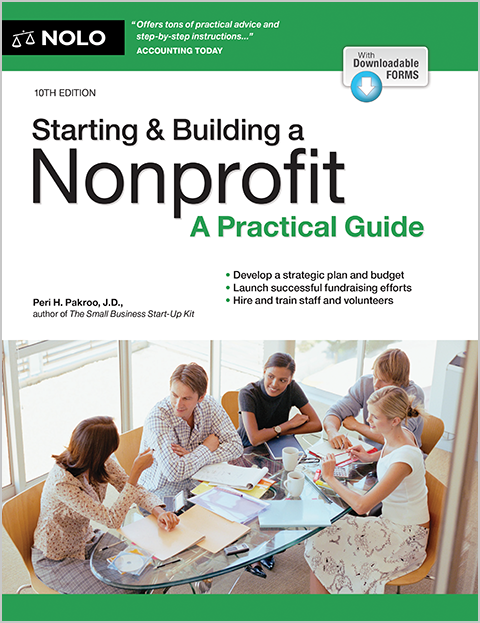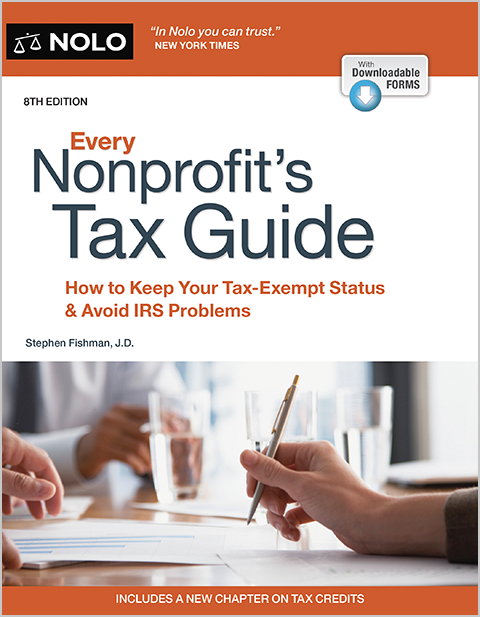The 501(c)(3) determination letter is proof of your organization's tax-exempt status.
After your organization submits an application for 501(c)(3) tax-exempt status, the IRS will respond with a determination letter. If the IRS approves your application, you will receive a favorable determination letter, which explains your rights and responsibilities as a tax-exempt organization. Donors and grantors might request to see your determination letter for proof of your tax-exempt status.
Alternatively, if the IRS denies your application, they will send you an adverse determination letter. The letter will provide the reasons why your nonprofit does not meet the 501(c)(3) requirements, and your right to appeal.
Contents of a Favorable Determination Letter
If the IRS approves your application, the determination letter will provide important information for your organization, including:
- The effective date of exemption. The IRS will treat your organization as tax-exempt as of the effective date, meaning donations made after the listed date are tax-deductible, and income your nonprofit received after the date is not subject to corporate income tax. If you filed for exempt status within 27 months of forming the organization, your effective date of exemption will be retroactive to the date of incorporation. Otherwise, the effective date will be the postmarked date of the application.
- Tax-deductible contributions. The letter may indicate that donations and bequests made to your organization are tax-deductible, and provide the applicable tax code.
- The accounting period ending. The letter will provide your accounting period ending, which should match the date you listed in your application. The date is important because your organization's tax return will be due on the 15th day of the fifth month after your accounting period ends (for example, if your accounting period ending is December 31, your return will be due on May 15).
- Annual return requirement. The letter will specify your organization's annual filing requirements (most nonprofits must file form 990, 990-EZ, or 990-N). If you fail to file the required form for three consecutive years, your organization might lose its tax exemption. For more information, see Nonprofit Annual Filing Requirements.
- Group exemption. If you listed subordinate organizations in your application, the letter may indicate that the affiliated nonprofits are also tax-exempt.
Next Steps After a Favorable Determination Letter
After you receive your determination letter, store it with your nonprofit's records and keep it readily accessible. Determination letters are subject to public disclosure, meaning you must allow the public to inspect and copy the letter upon request. In addition, donors, grantors, and others who provide discounts to tax-exempt organizations might request to see the letter to confirm your 501(c)(3) status.
Check your state's registration requirements for tax-exempt organizations. In many states, your determination letter does not automatically exempt your organization from state taxes, and you must file paperwork with your local tax agency for state tax exemption. Check out our 50 State Guide on how to form a nonprofit for more information about registering in your state.
Requesting Copies
If you misplaced your determination letter, you can request a new one from the IRS. If the IRS issued your determination letter after January 1, 2014, you can download the original letter from the Tax Exempt Organization Search (TEOS). Older organizations can request a copy of the determination letter by submitting Form 4506-A to the IRS.
Alternatively, you can request an affirmation letter, which will confirm that your nonprofit is tax-exempt as of the date of the request. For grantors and donors, an affirmation letter serves the same purpose as the original determination letter. You can obtain the letter by having an officer or trustee contact IRS Customer Account Services by phone, mail, or fax. If you submit the request in writing, be sure to include the organization's name, Employer Identification Number (EIN), and authorized signature of the officer or trustee.
Adverse Determination Letter
If the IRS finds that your organization does not meet the requirements for 501(c)(3), or that they do not have enough information, they will issue you an adverse determination letter. In the letter, the IRS will explain the reasons why you do not meet the requirements for a 501(c)(3) organization. At this point, you have three options: you can file an appeal (referred to as a "protest"), start a new 501(c)(3) application from scratch, or reconsider whether exempt status is an option for your organization. An attorney can evaluate your situation and help you with the next steps.
If you decide to appeal, you must send the protest to the Exempt Organizations Rulings and Agreements office. If they agree with you, they will send you a favorable determination letter. If not, the office may send you a revised adverse determination letter, or forward your protest to the Appeals Office.



